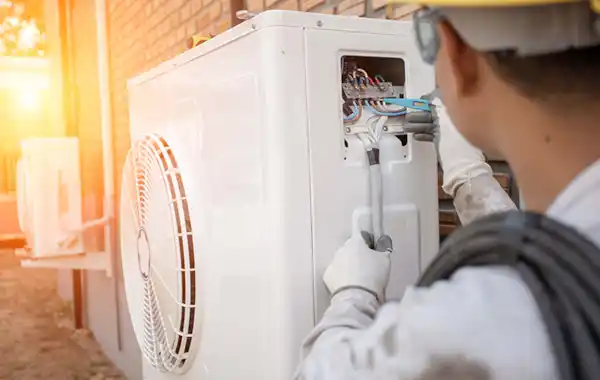22 February 2023
|
Heat pump industry figures have echoed criticism of the government's Boiler Upgrade Scheme from the Lords Environment and Climate Change Committee.
The scheme is failing to deliver on its objectives with a disappointingly low take-up of grants, according to the committee.
In a letter sent to Lord Callanan, parliamentary under secretary of state for energy security and net zero, the committee warns that if the current take-up rate continues, only half of the allocated budget will be used to help households switch to low-carbon heating systems and a healthy market of installers and manufacturers will not be in place in time to implement low-carbon heating policy measures smoothly. Therefore, the Government’s 2028 target of 600,000 installations per year is very unlikely to be met.
Ofgem figures show that as of 31 January 2023, 9,889 vouchers have been issued worth a total value of £49,730,000. By the same date, 7,641 vouchers have been redeemed, meaning there have been 7,641 installations under the BUS. £150mn has been allocated for each year of the scheme and £450mn is available in total.
Henk van den Berg, from heat pump manufacturer Daikin UK, said: “It’s disappointing there hasn’t been more uptake in the Boiler Upgrade Scheme, but the government must do better at properly communicating the benefits of heat pumps versus fossil fuel systems. For example, a heat pump will typically save 5%-10% in annual running costs compared to a gas boiler. We also believe the ban on the installation of gas boilers in new homes should be brought forward if heat pumps are to become mainstream and support the UK’s net zero ambition.
“Clearer training support for installers – particularly sole operators – will be key to meeting this target, too. Daikin currently trains 3,000 engineers to fit low carbon heat pumps every year, but we have the capacity to double this number. The government needs to support our industry in shouting about the opportunities that jobs in the green economy offer.”
Bean Beanland, the Heat Pump Federation's director of growth & external affairs, said: “The BUS is the current cornerstone of government policy to decarbonise domestic heating. Heat pump take-up across the country is increasing, as is industry investment, but the BUS’s first year of operation has been challenging for all the reasons outlined by the Lords Committee.
“The committee’s findings chime precisely with what heat pump installers and consumers are telling us. In particular, homeowners and landlords need better information on heat pump technologies that are available now, and this needs to be underpinned by an EPC framework that appropriately recognises the benefits of heat pump systems.
“Given the disjointed launch of the scheme and the urgency needed to mitigate against climate change it is completely inappropriate for HM Treasury to clawback any underspend. Rather, the unspent funds should be used to extend the scheme in year two and to increase support for ground-source deployment to match the demand proven under the previous Domestic Renewable Heat Incentive.”
Committee findings
Following its inquiry into the scheme, the committee found:
- Public awareness of low-carbon heating systems is very limited, and promotion of the BUS has been inadequate
- There is a shortage of heat-pump installers & insufficient independent advice for homeowners
- Hydrogen is not a serious option for home heating for the short to medium-term and misleading messages, including from the Government, are negatively affecting take-up of established low-carbon home heating technologies like heat pumps
- Upfront costs are too high for many households, even with the help of the grant, making it impossible for low-income households to benefit from the scheme
- While heat pump running costs are becoming competitive with gas boilers in some modelling, progress is urgently needed through electricity market reform to ensure running costs are affordable.
Committee recommendations
The committee is calling on the government to:
- Provide greater clarity to industry and consumers on feasible options for low-carbon home heating through a consistent policy framework, public communications, and householder advice
- Roll over the remainder of the BUS first year budget into the second year and establish a review to consider extending the scheme
- Correct the Energy Performance Certificates (EPC) methodology so that certificates properly reward households for making the switch to low-carbon heating and flawed EPC recommendations cease being a barrier to BUS eligibility
- Upgrade the provision of Government advice, alongside recognising the role of independent retrofit coordinators, to help households navigate low-carbon heating installations
- Relax the requirement arising from Permitted Development Rights to site a heat pump a certain distance from neighbouring properties.
Baroness Parminter, Chair of the Environment and Climate Change Committee, said: “The transition to low-carbon heat is fundamental in the path to net zero, given that 17% of the UK’s greenhouse gas emissions come from our homes.
"The government must quickly address the barriers we have identified to a successful take-up of the Boiler Upgrade Scheme in order to help grow the take up of low-carbon heating systems. It is vital they do so if we are going to meet our net zero ambitions.”








